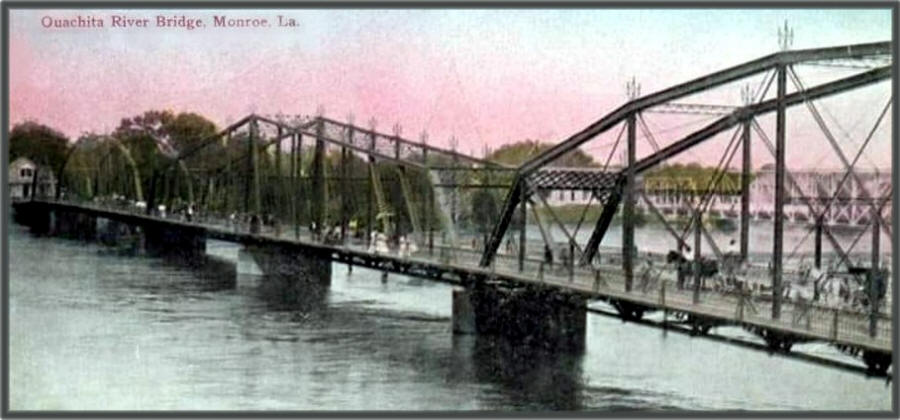
~ Delta Poetry Review ~
The Wreckage of Science and Healing
Healing emerged from the magic mists moving
In fields over herbs and flowers, black
in the moonlight and fat with juices.
Those who practiced the old ways with spells
passed their lore through the ages long
before books bound their secrets into bundles.
Healers’ green-grown words turned to curse when
stone-hearts
decreed that science was a kingdom for men
to train men to rule; healers were belittled and burned.
But my father, a doctor, never scolded this magic-hearted child when
I fed the fairies little seeds I collected; never lectured when
I sang hymns to the moon or talked to the trees.
My father the physician practiced both kinds of curing: science
as his sword and shield, but healing as instinct,
his magic of hearing the body speak—and replying.
He knew that something in the hand feels the same pain
as something in the foot, that altered skin colors
predict the body’s weather, that one should avoid
the liberal use of chemical compounds, unless nothing else
will save you. When I was a barefoot wildling, a wooden shard
pierced my leg from ankle to calf. After a surgeon removed it,
my father envisioned the wound held more and soaked it until two more
inches
of wood pushed out of my leg. Later, decades after, my father
found out his beloved wife was full of cancer’s black pearls.
He and his skills had aged into hazy afternoons of Sundowners Syndrome.
Nor could science craft medicine to save her. Such was his grief
he told none of his family until she was gone, and he was more
lost,
more broken than anyone could ever mend. We children took turns
at his home in the Georgia backwoods he’d never leave.
There we found a wreckage of healing, an impotence of science:
scores of boxes tucked throughout his house, full of bandages, dried
iodine,
yellowing gauze, expired ointments and moldered pills—mountains
of desperate medicine, like my faded father, silent symbols of a
sterile craft.
Mourning in Atlanta
—1965
a woman’s husband is dying in Atlanta,
his heart broke, kind-eyed colleague
of my father at university medical school.
the woman and her husband live
in a rented house southwest of the city,
twice as far as our Dutch Colonial house
in a sprawled suburb of northeast Atlanta
from the university hospital—
where parameds took him,
after some discussion,
IDs and a phone call.
she’s staying with us in my little sister’s room,
so, my father insists, he can drive her straight
to the hospital doors on his route to work.
my mother arranges a paper bag of food
for her to take—the hospital cafeteria
will have nothing for her to buy.
when they back out of our garage,
she ducks down inside the big Buick,
hidden on the drive through our neighborhood.
I see her through my upstairs bedroom window—
her small red-scarfed head resting on the arm
of the passenger door, lit by hot Georgia sun.
she will wait invisible,
ghost at the bedside of her beloved husband,
amid machines, silent doctors and nurses
swishing past her with their opinions secret,
until her husband dies, the machines go silent,
and she calls my father
so he can talk doctor
to the doctor who ignores her.
when the woman and my father
left home the first day, my mother told me
if neighbors ask, just tell them
she’s our new housemaid.
did I tell you, America,
our guest is Black?
did I need to?
when her husband died, my father asked me
to go with him to the visitation at their home
miles and cultures across Atlanta from ours.
I stood there in a corner in a room full of food
and strangers side-eyeing, asking each other,
who’s the white girl? no one spoke to me,
I spoke to no one, except the new widow
whose hand I held a long moment, then retreated again,
an awkward 15-yr-old who had never been to a visitation,
a funeral, a household in mourning.
my father stood quiet behind the new widow
who swayed with grief. occasionally he steadied her,
cradling her elbow, a doctor attendant to the frailty
of a human body redolent with sadness,
knowing she must deliver herself through this
bleak passage, lifted by family and friends who love her.
then on our ride home, in the darkness along I-85,
we passed a blatant fire in the shape of a cross
filling the yard of a small house, men standing around it
in shirts and jeans, not hiding, not dousing a fire,
don’t look at them, my father said, don’t even look.
the civil rights act was a mere year old; the lynchers stood
framed by the hate they lit, too bold to wear sheets
on this Southern night that blanketed them
with heat, too arrogant to hide from flames’ light.
no one was safe
no one
and now, what has changed? a white power cosplay
of sheets or flags still storms the streets with impunity.
BLM marches are hijacked by white radicals left and right,
interviews juke their hires, equal opportunities lie—
to wash white jobs whiter. mothers must warn their children
about police, about teachers, about shopping,
about swimming—
because their children are Black—and I wonder, who will lead us
out of this desert? Where is the hand that will steady us,
deliver us through a passage beyond hate?
Susan Swartwout is a professor emerita of English. She is the author of the poetry book Odd Beauty, Strange Fruit, 2 poetry chapbooks, editor of Proud to Be: Writing by American Warriors volumes 1 through 5, and the co-editor of Hurricane Blues: Poems About Katrina and Rita, and Real Things: An Anthology of Popular Culture in American Poetry. She taught creative writing and publishing, and has worked in the publishing industry for 31 years as a publisher, editor, and copyeditor. Email: susan.swartwout@gmail.com
| Archive | Submissions | About |